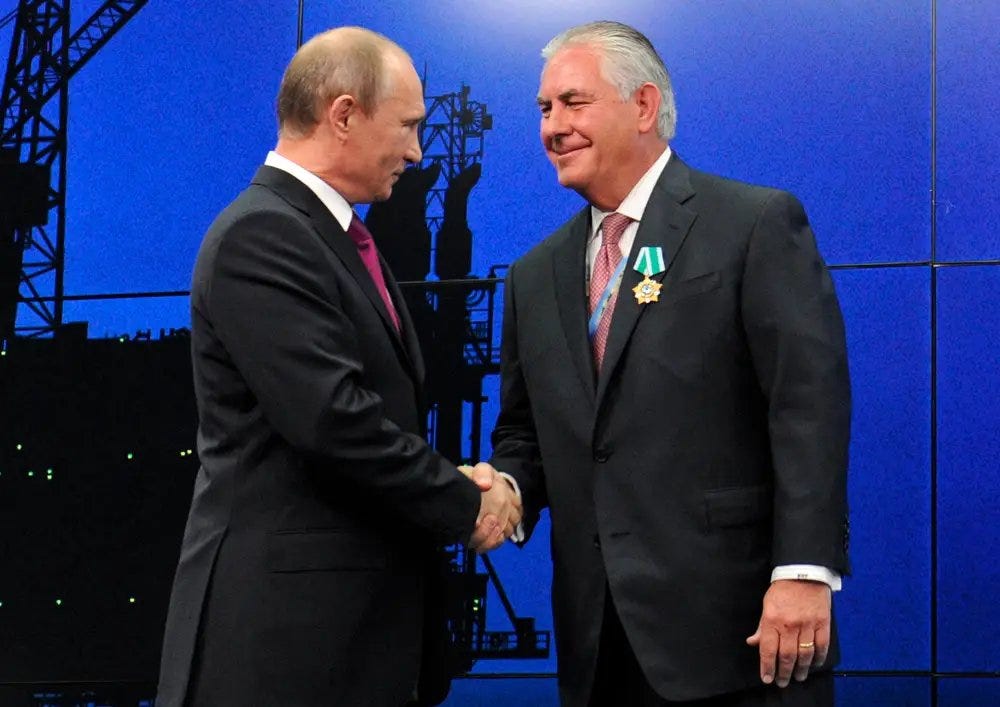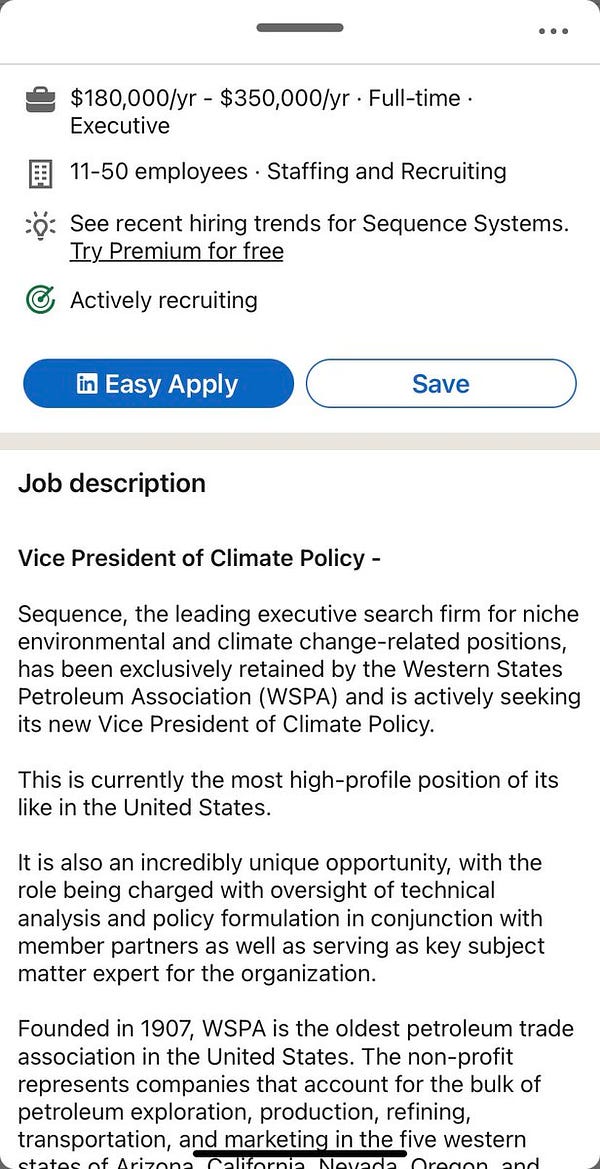The State of the Stock Market is Strong
Reducing barriers to jobs in the corporate lobbying sector; the bravery of Ukrainian climatologist Svitlana Krakovska
PRESENTED BY THE ORDER OF FRIENDSHIP
We’re starting off with a correction: I wrongly attributed yesterday’s headline quote, “Human induced climate change and the war on Ukraine have the same roots: fossil fuels, and our dependence on them,” to Russian climatologist Oleg Anisimov; as reported by the Washington Post’s Sarah Kaplan, the line was spoken by Ukrainian climatologist Svitlana Krakovska.
One of the contributors to Bloomberg’s climate newsletter, Akshat Rathi, reached Dr. Krakovska by phone at her home in Kyiv: “she’s keeping safe by going to the bathroom in the middle of the apartment whenever she hears explosions.” Rathi reports her full remarks at the IPCC conference:
“Someone could question us that IPCC is not a political body, and should only assess science related to climate change. Let me assure you that this human-induced climate change and war against Ukraine have direct connections and the same roots. They are fossil fuels and humanity’s dependence on them. While emissions of greenhouse gas have changed the energy balance of the planet, the ease of receiving energy from burning coal, oil and gas has changed the balance of power in the human world. We cannot change laws of the physical world but it is our responsibility to change laws of human civilization towards a climate resilient future.”
Dr. Krakovska told Rathi why she spoke out: “I didn’t want to undermine IPCC’s credibility. But then I realized that this war was not just a war against Ukraine. It’s a war against against humanity.”
Russia’s war against Ukraine “has made her angry in part because she feels Russia is choosing to use its oil and gas money on missiles rather than helping its own people.”

Another country with a tremendous amount of oil and gas money and a very large supply of expensive missiles is the United States of America. Judd Legum peels back the details of the furious propaganda campaign being waged by the American fossil-fuel industry to exploit the Russian invasion while deflecting notice of their complicity in Russia’s oil economy. Unlike BP and Shell, ExxonMobil has refused to sever its investments in Russia, which include a 30 percent stake in the Sakhalin Island oil and gas fields.
Tonight, President Joe Biden is delivering his first State of the Union address, with the official two-year death toll from Covid nearing one million Americans, with the Russian invasion ongoing, with climate pollution accelerating. Will he announce a Green Marshall Plan, using the Defense Production Act to get Americans to work building millions of heat pumps to help our country and Europe end their dependence on fossil fuels?
No.
Talking points released by the White House for the State of the Union address indicate that Biden’s domestic agenda and rhetoric reflect a pretty complete concession to the shadow Democratic president, Joe Manchin, and the priorities and ideologies of American capital.1 The singularly uninspiring agenda now emphasizes making problems less bad:
“Reducing the cost of everyday expenses working families face and reducing the deficit.”
While Biden will call for some social and climate programs that Republicans and Sinemanchin will continue to block, he will emphasize legislation written by and executive actions for the benefit of big business, including the Ocean Shipping Reform Act and the CHIPS Act. It remains to be seen whether tax breaks for the cleantech industry can pass muster with President Sinemanchin.
Congress has a lot of hearings this week, including a Senate hearing on Thursday on the aforementioned Ocean Shipping Reform Act of 2022, which would roll back some of the worst effects of the deregulatory Ocean Shipping Reform act of 1998, which stripped many powers of the Federal Maritime Commission. Matt Stoller has called it a “landmark piece of anti-monopoly legislation,” though Hannah Story Brown at the Revolving Door Project notes that the legislation “bestows more new requirements upon the Commission than new powers.” David Dayen calls the bill “at once modest and pretty radical in scope.” As things currently stand, there is no chance that any version that passes will improve working conditions or address climate pollution in the shipping industry.
Today, Manchin’s committee is holding a hearing on advanced nuclear power, the House natural resources committee is discussing several national parks, forests, and public lands bills, House Ag is sitting down with industrial agriculture lobbyists, and the homeland security committee is interviewing FEMA deputy administrator Erik Hooks.


Senator Elizabeth Warren (D-Mass.) has endorsed Jamie McLeod-Skinner in the primary for Oregon’s 5th Congressional District over the wildly unlikable incumbent Kurt Schrader.
Hearings on the Hill:
10 AM: Senate Energy and Natural Resources
Energy Science, Nuclear and Energy Security Legislation10 AM: House Natural Resources
National Parks, Forests, and Public Lands Legislation10 AM: House Agriculture
A 2022 Review of the Farm Bill: Commodity Group Perspectives on Title 110 AM: House Homeland Security
FEMA: Building a Workforce Prepared and Ready to Respond Part 2
Climate Action Today:
Our closing quote is from Dr. Krakovska, on what motivates her to be a climate scientist and to speak out against the dominance of fossil-fueled politics and war:
“I’ve traveled the world and I’ve seen this beautiful planet. And I want to preserve it for my children.”
The perfect summary from Reuters of the agenda of market supremacy: “Biden's speech will call for many of the reforms on housing, education and climate to be passed under the rubric of a four-point plan: moving goods cheaper and faster; reducing everyday costs; promoting competition; and eliminating barriers to jobs.”





